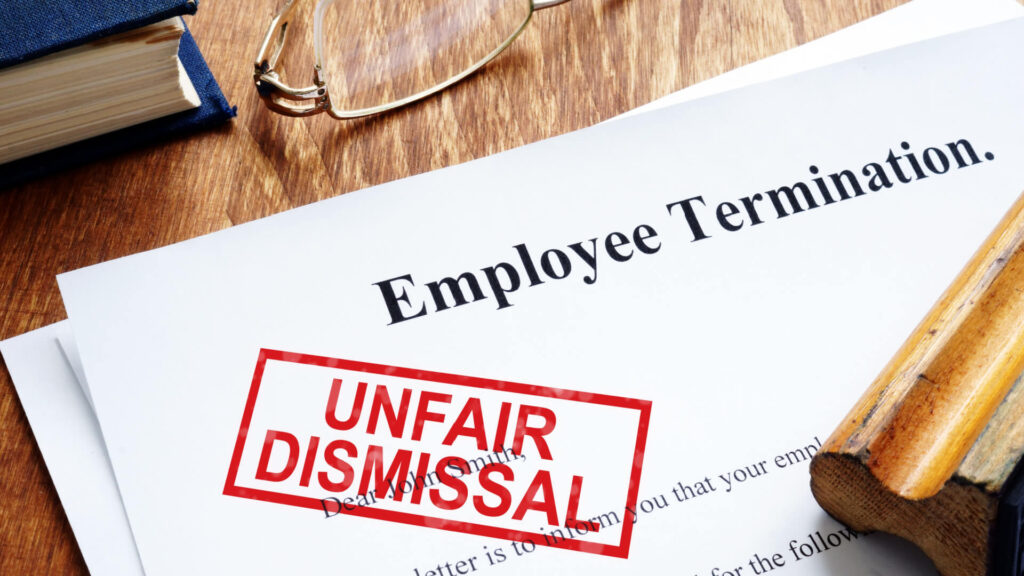Have you ever wondered which words in the universe of words could scare the living daylights out of human resources? Working in the Human Resources Department is a demanding job. You are expected to know everything about employee relations, workplace safety, salary and benefits, and workplace violence prevention. If that isn’t enough, you must also stay current on trends and regulations! In short, so many things could go wrong, and so many things you must do correctly to keep your job. That is why, in this article, I will discuss 10 biggest challenges that strike fear into the hearts of HR professionals
Whether you are an HR manager or hoping to be one, this list will help you understand the challenges you may face and how to overcome them.
Also, if you’re an employer wanting to hire a new HR professional, this article will help you understand what your new hire will face when they start the job—and what you can do to ensure they have everything they need to succeed.
Key Takeaways
- HR professionals face challenges when dealing with certain phrases in the workplace.
- Lack of qualifications and experience might result in decreased productivity and higher costs.
- Conducting frequent HR audits can help solve common problems and boost employee morale.
- Staying current on legal developments and utilizing Practical Law resources can help reduce risks in HR operations.
10 biggest challenges that strike fear into the hearts of HR professionals
Lack of Qualifications

In today’s competitive job market, HR departments face the challenging task of finding qualified candidates with the right skills and experience.
Hiring employees who lack the necessary qualifications can have severe consequences for businesses, such as decreased productivity, poor work quality, increased costs, reduced competitiveness, and missed growth opportunities. These words are potent enough to scare anyone in the Human Resources department.
When important roles remain vacant due to a lack of qualified personnel, it impacts the team’s overall productivity. I mean, what’s a project without a project manager? Or a product without a sales rep?
Projects may be delayed or incomplete to the expected standard, affecting the organization’s ability to fulfill deadlines and provide high-quality products or services.
This can lead to decreased client satisfaction and harm the organization’s reputation.
Also, imagine having to work with unqualified candidates; they may require more supervision, support, and guidance, which reduces overall productivity. Sounds daunting, doesn’t it?
It can also increase costs because the company may need to invest more in development and training programs. These resources could have been used elsewhere if qualified candidates had been hired from the outset. Moreover, unqualified workers.
In addition, the lower quality of work done by unqualified candidates may have long-term consequences for the company. This could result in dissatisfied customers, loss of business, and damage to the brand’s reputation.
To maintain a competitive advantage in a highly competitive market, companies must endeavor to provide the best quality of products or services possible.
In today’s fast-paced business environment, low competitiveness can damage an organization’s success.
Without competent workers, businesses may struggle to keep up with market trends and innovation. This can lead to missed growth opportunities when competitors with more qualified staff enter and capitalize on emerging markets or new initiatives.
Check out: Is Human Resources a good career choice?
Making a Bad Hire
In fact, hiring a candidate is one of the most risky things you can do as a manager because once you’ve made an offer, it’s impossible to reverse the decision.
The problem is that it’s easy to become caught up with recruiting someone because they appear perfect on paper—they have the experience, skills, and attributes you seek.
But what if it turns out that their personality does not mesh with your corporate culture? Or, worse, what happens if you hire them only to discover they aren’t really competent at their job?
I once had to fire an employee after only a month of employment due to a total miscommunication during the recruitment process. This happened at the beginning years of my HR journey. I had to learn the hard way, but you can avoid this altogether, which is why I’m bringing it to your notice now. Do not make the same mistake most of us did; be careful and thorough!
Sometimes, many HR experts would ignore red flags that would disqualify a potential employee in any other company, whether owing to personal biases or pressure from superiors to make a speedy hire.
You may, for example, settle for developers with no coding experience rather than risk someone who lacks their specific skill set. Alternatively, you could choose someone who appears to be easier to handle than someone who may be more skilled.
The issue is that the cost of a bad hire is enormous. And it’s not only about money.
It’s also about the stress and frustration of dealing with someone who isn’t working out, which interferes with your ability to focus on doing your job well. “Stress and frustration” are words that could scare employees in any department, including those in human resources.
Of course, there is no one-size-fits-all approach to selecting the best candidate for any position, but you should always screen your candidates thoroughly.
Remember that interviewing entails more than simply asking questions about their background. It is about assessing whether they have the right skills and personality attributes to succeed in your organization.
Lack of Experience
Lack of experience is a significant concern for HR departments in the workplace. When employees lack the necessary experience, their productivity and job quality suffer.
Individuals with little experience may need more time and resources to learn on the job, resulting in reduced efficiency and effectiveness.
Hiring inexperienced employees can also result in increased costs for companies. These costs stem from the necessity to provide substantial training and development programs to close the experience gap.
Investing in the training of inexperienced employees is vital, but it can strain organizational resources.
Furthermore, a reputation for recruiting inexperienced employees might make it more difficult for HR departments to attract top talent.
Experienced professionals may see a lack of experienced employees as a red flag and be less likely to join a company that is believed to lack a skilled workforce.
This lack of experience also affects an organization’s competitiveness and growth opportunities.
Without skilled individuals to lead new projects or expand into new areas, the company risks missing out on growth opportunities and losing its competitive edge in this industry.
Working With Difficult Individuals

In any organization, there will be difficult people who make your life more difficult than it ought to be. We can all surely relate to this, even in our daily activities.
You may come across employees who are routinely late to work, do not do their jobs well, and perform poorly overall. Or, you may have to deal with employees who are too emotional and get into heated confrontations with coworkers.
Employees may even talk badly about the company and spread rumors. I recently had to deal with an unsatisfied employee who always felt attacked and even exaggerated the actions of a coworker and called it abuse in the workplace. The individual went further to spread rumors of abuse in the company.
Handling these people can be frightening and overwhelming if you are not prepared. That particular employee I had to deal with was somewhat intimidating and aggressive. But here’s the thing: as an HR professional, you must find ways to make it work.
Here are a few tips I use for dealing with this situation:
- Determine whether this is a case of a difficult employee or if the attitude is a cause of something else, such as miscommunication, a lack of training, or a personal problem.
- Keep it professional. Remember to keep your emotions under control and don’t let your personal feelings about the person influence your work.
- Give feedback early and often. The sooner you acknowledge and manage a problem, the less likely it is to worsen or become a bigger issue for others in the workplace.
Read Also: How to Deal with Difficult Employees
Handling Sexual Harassment Allegations
Human resources professionals may face difficulties when dealing with sexual harassment claims. They must act as a mediator between the victim and the alleged culprit, which is obviously challenging in such a delicate situation.
HR must take these charges seriously and understand that they can do irreversible harm to an employee’s life and an organization’s reputation if not handled appropriately.
Because sexual harassment claims can be made by a wide spectrum of employees and under a number of conditions, there is no simple way to prevent them.
Even Vice Media, a billion-dollar global digital media and broadcasting company, had to settle four cases of defamation or sexual harassment with former employees a few years ago. It gained a lot of attention; the company lost a lot of competent employees. After some investigations, however, three employees were fired for violating its HR policies, and two executives were suspended.
In case of these situations, your best bet is to ensure that your organization has a clear policy against sexual harassment and that you provide opportunities for your employees to express their concerns about any inappropriate behavior they may encounter in the workplace.
If people are aware of the rules and consequences, as well as where to seek assistance if they fear they are being harassed, it should be much easier for them to speak up when they have cause to believe someone is targeting them (or a coworker).
Failing to Identify and Handle Employee Issues
Another group of words that scare human resources professionals is the failure to identify and resolve employee issues.
Why? Because it can be detrimental to the company.
These issues could range from workplace conflict that reduces productivity to a lack of employee motivation or engagement, which could result in increased turnover or even decreased product quality.
For example, employees who are not treated fairly regarding hours or salary can become discouraged. This will undoubtedly impact their effectiveness at work and may cause problems if they are having issues with another employee.
That is why, as a human resources manager, you must handle all of these issues—not just because it is the right thing to do, but also because if these issues are ignored, they can become public and cause significant consequences.
Failure to resolve a problem before it becomes public may result in the following consequences:
Loss of business credibility:
If your clients don’t believe you’re taking steps to avoid harassment and discrimination within your company, they may choose not to work with you.
Loss of productivity:
Employees might stop bringing up complaints if they believe they are not being taken seriously or addressed appropriately by HR. This can result in serious problems that worsen over time before management notices something is amiss.
Loss of key talent:
When brilliant employees feel ignored or mistreated by HR, they may lose motivation for their work and, as a result, quit the organization.
To avoid this, it is essential to create a system where employees feel comfortable approaching their superiors with problems.
You must ensure they understand that you are there for them and ready to listen. One of the most effective ways to accomplish this is to communicate with them regularly, whether daily, weekly, or monthly.
Facing Wrongful Termination Lawsuits

Another group of words on this list that scare human resources professionals is wrongful termination lawsuits. These are situations where an employee believes they were wrongfully fired and wishes to sue the company.
This can be a major problem because they are costly and time-consuming, particularly for small companies that lack the resources needed to fight them. And the whole process of defending against lawsuits is so daunting! Sometimes, it would even feel like the system is out to get you…
So, as an HR professional, how can you protect your organization from this?
The best way is to have a solid review process in place before firing somebody.
It must involve more than a few meetings or conversations. It must include concrete evidence of an employee’s performance or behavior that led to the decision to terminate their employment with your company.
That way, any lawsuit arising from wrongful termination is likely to be dismissed by a judge before it even reaches trial because you will be able to show that there was sufficient cause given prior to firing the employee. This has saved me a lot of time and stress, especially when former employees try to act sneaky.
Inadequate Training Resources and Development Programs
Human resource managers are constantly dealing with new employees, so they must be able to train them quickly and effectively. So, when there isn’t enough time or money to spend on appropriate training resources, it can be very frustrating!
They must make do with less-than-ideal substitutes, such as photocopied manuals, unwieldy video-on-demand systems, and difficult-to-use websites. This approach is not only inconvenient for employees, but it can also reflect negatively on the HR department as a whole.
To avoid this, you can find low-cost and easy solutions to provide your new hires with the tools they need to succeed in their jobs. These can include webinars, online tutorials, customized video training sessions, and in-house mentorships.
It’s also worth informing your supervisors about the importance of investing in staff training because it can reduce recruitment expenses and enhance employee retention rates. It also leads to a more lucrative business with satisfied customers and well-trained employees.
Lack of Good Communication Between Departments
This is a classic problem: HR is unable to understand the logistics of the manufacturing process, operations are unable to get marketing buy-in for their new plan to sell more products, and IT is unsure how to convert the most recent sales data into a usable format for management, and the list continues.
This situation is particularly frightening for HR managers who have no idea what other departments are up to. How can they ensure fair treatment and compliance with applicable laws if they don’t understand what’s happening?

The solution is to establish an effective communication system between departments so everyone is always aware of what is happening.
This system should include email or Slack status reports, as well as regular meetings with representatives from each department to discuss what they’re working on and how they can assist one another. Personally, I think it makes my job a whole lot smoother, so it will definitely benefit you.
Making a Mistake When Handling Sensitive Information
The final term on this list of words that scare human resources professionals is making mistakes while dealing with sensitive employee information.
These can include personal information such as medical records or immigration status paperwork, as well as information regarding workplace accidents, which could result in major lawsuits against companies if disclosed wrongly by accident.
When handling this type of data, you must take extra precautions to keep it safe and secure and ensure it does not fall into the wrong hands.
For example, in any organization I work with, I always have an established document management system that protects the privacy of your employee’s personal information and prevents unauthorized access. You can also implement this at your workplace.
Conclusion
It is evident that human resources professionals face a variety of scary situations on a daily basis.
They are not merely there to give warnings and write up disciplinary actions. They are also responsible for protecting employees from harassment and discrimination, guiding them through the often-confusing maze of employment regulations, and resolving problems between employees and management.
These are challenging responsibilities. However, you can overcome these challenges with the right strategy and help from your superiors and colleagues.
FAQs
What Should You Not Say to HR?
The “general rule” is that you should not bring everyday minor complaints to human resources. They are not there to make only your job easier or better, and they may terminate you simply because they do not want to hear it.
What Not to Say in an HR Investigation?
The most important thing not to say is: “I’m not sure, but…” Speculating or making assumptions might confuse the facts, resulting in misunderstandings. Stick with what you know. “It’s always been done this way”: This defense can imply an aversion to change or justify inappropriate behavior based on tradition, which does not hold up to scrutiny.
What Words Does HR Not Want to Hear?
General negative terms like “no,” “can’t,” “couldn’t,” and “didn’t.” It is true that hiring managers do not want to hear the word “can’t.”
What is Unprofessional Behavior in HR?
Inappropriate behavior in a leadership position may include coercive or threatening behavior, withholding promised support, blaming employees for personal mistakes, favoritism, improper dismissal and misuse of private information, changing the rules “after the fact,” breach of contract, and broken promises.
Related Articles
Is Human Resources a Good Career Choice for You? A Detailed Guide for Your HR Journey
How to Become an Effective Human Resource Manager in 4 Steps
